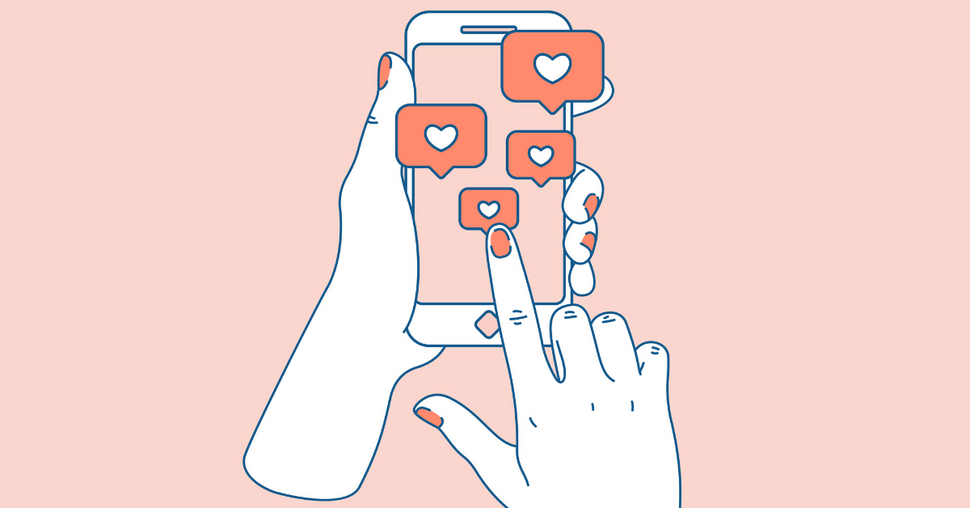The Digital Age In Feminism: What Is Its Impact?
01 Mar 2020
Like many social movements, feminism is constantly reshaped over time as a result of the movement’s successes, failures, and emerging socio-political and cultural challenges. The most significant impact comes from social media, which has transformed feminism itself and our perceptions of the movement. It’s impossible to narrowly define ‘real’ feminism, but we can get a better perspective of where it’s headed by understanding the impact of social media. At its core, feminism is the belief in the equality of all human beings, but whether it tears down discrimination and bigotry or tears us apart is left to be seen.
Social Media & Feminism’s Coming of Age
The Democratization of Feminism
Until fairly recently, the only feminist voices that were really heard were those of scholars, social leaders, and celebrities, while the masses of women from across the world remained largely silent. We have seen how social media has reshaped feminism, offering thousands of women from across the world to participate in the movement and to share their own experiences of victimization and bias. While the representation of women in the media remains inadequate, social media provides a more level playing field, featuring not just rich and powerful white women, but women of different ethnicities, nationalities, and societies.

Unifying Ground
Social media platforms have transformed feminism from a niche movement dominated by western elites to one that is truly global and unifying. Since the explosion in popularity of platforms like Facebook and Twitter, ordinary women have been able to make impassioned pleas for help, reveal their horror stories, or inspire others to action. The greatest strength of the word feminist in recent years has been the solidarity of those inspired to fight for equal rights under the banner of feminism and geographic barriers no longer serve as an obstacle.
Increased Awareness
While it’s easy to dismiss the campaigns as insignificant, we have seen how social media is changing the feminist movement, raising awareness about women’s rights and the violation of those rights. Meaningful change is just not possible without higher levels of awareness. The #BringBackOurGirls campaign, for example, helped to highlight the plight of schoolgirls in Nigeria, who were abducted by Boko Haram. Similarly, the #NiUnaMenos campaign helped organize and unify women from over 10 Latin American countries, bringing them out onto the streets to demand an end to violence against women.
Forcing Needed Change
Awareness is a driver for social change, so it’s no surprise that feminist social media movements have also produced tangible results in the real world. Victoria’s Secret, which was only a decade ago, a behemoth in the fashion world, has literally been brought to its knees for fueling the objectification of women, pushing unrealistic body standards, and failing to change with the times. It began with social media activism and a change.org petition that challenged the brand’s ‘perfect body’ slogan. The example of women flooding a company’s Facebook page to protest their sexist children’s clothing was just as effective and illustrates the power of how social media has reshaped feminism. Of course, nothing has been more powerful than the #MeToo movement for its effectiveness in exposing widespread and institutionalized sexism – it generated half a million responses within 24 hours and led to the downfall of many powerful men and women from Weinstein to Epstein.
Social Media & the Implosion of Feminism
False Empowerment
You’ve probably come upon hashtags like empowerment or posted them yourself, but the truth is ‘empowerment’ on social media and how social media is changing the feminist movement is nothing but another catchphrase. Feeling empowered is certainly not the same thing as having real power; it’s about feeling good and taking control of your personal life with things like fitness and so on. While that is commendable, it’s a far cry from women’s empowerment, which is about equal opportunity, equal pay, equal representation, and equitable allocation of resources – without the achievement of those goals, women can have no real power.

Validation Through Objectification
Social media has opened the idea of internalized feminism or self-sufficiency, which at face value is good. Yes, posting selfies and being comfortable in your own skin is important. Unfortunately, this has increased objectification, with many seeking the approval of others through ‘likes’, reducing ourselves to a series of images and our self-worth to the number of ‘likes’.
Tribalism & Purity Tests
We’ve already seen how divisive social media can be with its polarizing influence on American society almost tearing the country apart. Those polarizing effects are also felt in feminism, with some feminists seeking to narrowly define what feminism is and castigating those feminists who do not measure up. Instead of being a liberating force that allows women to wear what they like, think freely, speak their minds, and live how they choose, feminism in social media is often seen to attack women for being too feminine or not embracing femininity and feminism adequately. There’s no pleasing everyone and we can’t pass every purity test.
Amplifies the Hateful Voices
Real feminism is about self-respect and respect for others, which is hard to achieve when your main interaction takes place behind a screen. Studies show that social media can have a dehumanizing effect, creating distance between people and fostering cruelty. It’s easier to be unempathetic and hurtful from your keyboard than it is in face-to-face conversations. This explains the cruel attacks of radical feminists on other women for not being feminist enough, the attacks of misogynists on women (which didn’t require social media to begin with), and the attacks on men by some feminists just for being men. With how social media is changing the feminist movement, we have seen how it has also amplified the voices of hate, driving the perception that feminism is about hatred of men. In truth, feminism is about equality and women who champion female domination over men are misandrists, not feminists.
Feminism today has become truly global, in large part because of social media. But, the age of ‘likes’ and ‘how social media has reshaped feminism’ has also done considerable damage to the cause it helped grow. Reports show that most men and women, even in liberal Europe, reject the term feminism. They strongly believe in and are willing to fight for equality, but their perception of feminism has been tainted. For feminism to thrive and succeed, it needs to return to its core beliefs, being inclusive to all women and men, while tuning out the exclusivity and hate of radicals.
Skin: Renew - Glutathione - Orange Flavour
- ₹1,994
- ₹1,994
-
₹2,600 - ( 23% OFF)
Categories
- Choosing a selection results in a full page refresh.
- Press the space key then arrow keys to make a selection.
this is the sidecart











